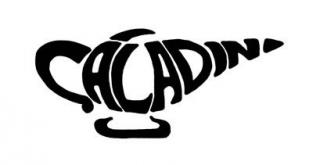Dear ALADIN community,
In this ALADIN Online Alert, I would like to highlight:
|
|
|
I wish you enjoyable reading,
Lisa Krolak, ALADIN coordinator |
|
The changing landscapes of literacy and adult education
Source: RELA, vol. 11, no 1, 2/2020
Dossier spécial - Éducation des adultes et Covid-19
Source: Institut de coopération pour l'éducation des adultes (ICÉA), 3/2020
Lang: FRE |
|
Best of online teaching and learning: COVID-19
Source: Journal of Open, Flexible and Distance Learning; vol. 24, no 1, 5/2020 |
|
Canadian Journal for the Study of Adult Education (CJSAE)
Source: Canadian Association for the Study of Adult Education (CASAE), vol. 32, no 1, 4/2020 |
|
Latin America and the Caribbean
|
|
Doing competence: On the performativity of literacy and numeracy from a post-structural viewpoint / Heilmann, Lisanne
Source: International Review of Education; 5/2020
Evolution of adult numeracy from quantitative literacy to numeracy: Lessons learned from international assessments / Tout, Dave
Source: International Review of Education; 4/2020
Global Alliance for Literacy within the Framework of Lifelong Learning (GAL): Strategy 2020–2025
Source: UIL, 4/2020
Lang: ENG, FRE
How prison libraries support rehabilitation efforts
Source: UIL Policy Brief 11, 4/2020
Lang: ENG, FRE, SPA
International assessment of low reading proficiency in the adult population: A question of components or lower rungs?
Grotlüschen, Anke; Nienkemper, Barbara, Drucker-Euringer, Caroline
Source: International Review of Education; vol. 66, no 2–3, 4/2020 |
Numeracy, adult education, and vulnerable adults: a critical view of a neglected field
Gal, Iddo et al.
Source: ZDM; vol. 52, no 2, 4/2020
Practice makes perfect: Practice engagement theory and the development of adult literacy and numeracy proficiency
Reder, Stephen; Gauly, Britta; Lechner, Clemens
Source: International Review of Education; vol. 66, no 2–3, 4/2020
Proficiency level descriptors for low reading proficiency: An integrative process model
Durda, Tabea et al.
Source: International Review of Education; 4/2020
Renforcer les compétences des personnes peu qualifiées / Matteo, Sgarzi
Source: CEREQ, 1/2020
Lang: FRE
Unlocking the potential of family and intergenerational learning
Source: UNESCO COVID-19 Education Response: Education Sector issue notes,
Issue note no 2.3 – April 2020 |
|
Adult Literacy Education
Source: ProLiteracy, vol. 2, no 1, 4/2020
L’alphabétisation des adultes au Canada : un rapport du SCFP
Source:Syndicat canadien de la fonction publique, 1/2020
Lang: ENG, FRE |
|
Latin America and the Caribbean
|
|
Family Farmer Course: Possible approximations with the Popular Education and the Rural Education
Lottermann, Osmar; Frantz, Walter
Source: Revista Brasileira de Educação do Campo; vol. 5, 4/2020
Lang: ENG, POR |
|
L’avenir est social et émotionnel : L’évolution des compétences recherchées au XXIe siècle
Giammarco, Maria; Higham, Stephen; McKean, Matthew
Source: Conference Board of Canada, 3/2020
Lang: FRE
|
|
Technical and Vocational Education
and Training
|
|
International Journal for Research in Vocational Education and Training (IJRVET) Chalapati, Nakarin; Chalapati, Supaporn
Source: International Journal for Research in Vocational Education and Training (IJRVET), vol. 7, no 1, 4/2020
Lifelong Learning in the Informal Economy: A Literature Review
Source: International Labour Office (ILO), 4/2020 |
|
Vision 2030 and reducing the stigma of vocational and technical training among Saudi Arabian students / Aldossari, Abdulaziz Salem
Source: Empirical Research in Vocational Education and Training; vol. 12, no 1, 4/2020 |
Reimagining vocational qualifications
Source: Australian Industry Group, 4/2020 |
|
Special Issue: Technology-Mediated Learning in VET – Perspectives on Changing Educational Landscapes in the 21st Century
Source: Nordic Journal of Vocational Education and Training (NJVET), vol. 10, no 1, 2/2020
The German system of vocational education and training: challenges of gender, academisation and the integration of low-achieving youth:
Haasler, Simone R.
Source: Transfer: European Review of Labour and Research; vol. 26, no 1, 2/2020
Unrealised potential: the role of independent training providers in meeting skills needs
Gladding, Cath; Warner, Paul
Source: British Council, 1/2020
Vocational education and training in Europe, 1995-2035: Scenarios for European vocational education and training in the 21st century
Source: CEDEFOP, 4/2020
Workforce Innovation to Foster Positive Learning Environments in Canada
Source: OECD, 4/2020 |
|
The ALADIN Online Alert is a joint ALADIN initiative, produced bimonthly by the UIL Library and CDÉACF, with input from additional ALADIN members from all over the world. Its goal is to share recent online and full-text information and documents in the area of adult and lifelong learning.
To propose items for upcoming alerts, please contact the ALADIN coordinator Lisa Krolak.
To view older ALADIN Online Alerts, please visit the ALADIN website. |
|
|
|
|
|
















Latest Comments